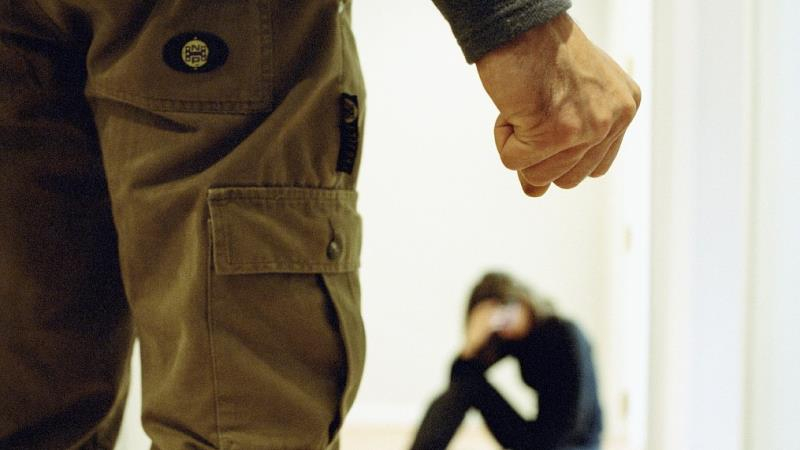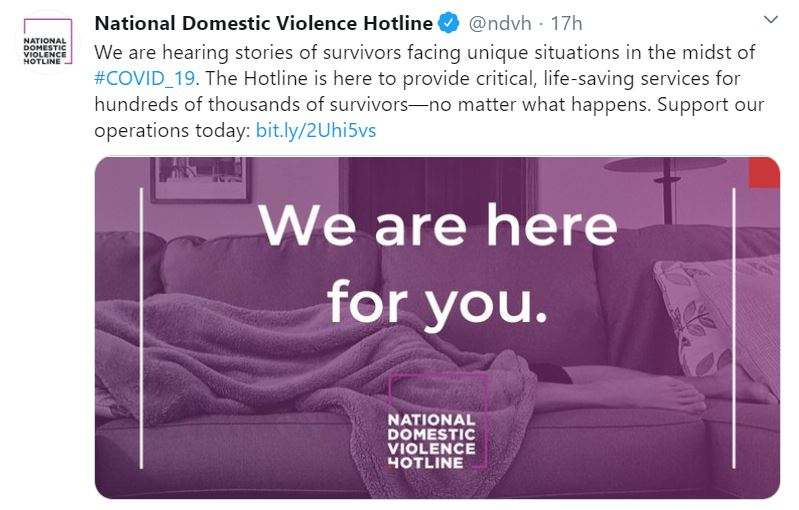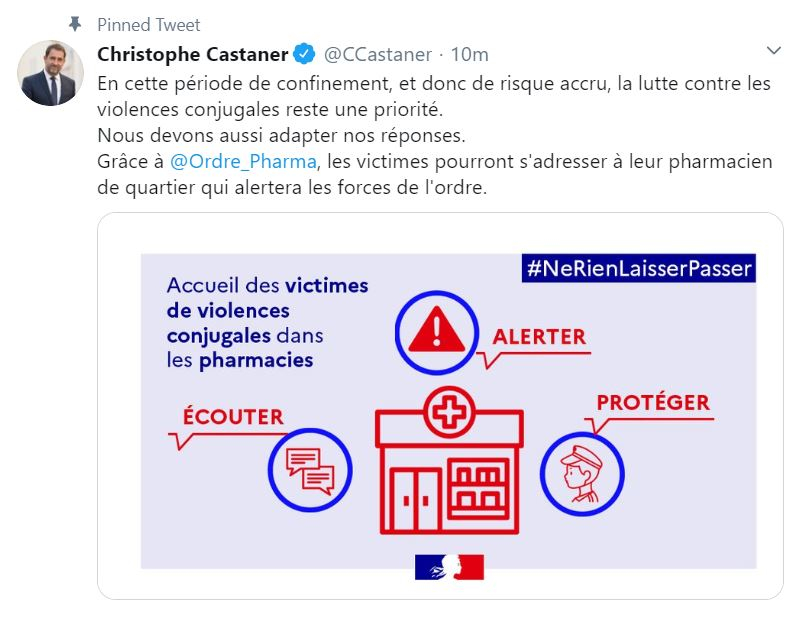
Stock photo portraying domestic violence. /VCG
Stock photo portraying domestic violence. /VCG
In Austria this week, a man nearly beat his wife to death because the isolation and stress of staying at home "had become too much." In the U.S., abusers have used COVID-19 to blackmail or pressure their partners into submission, social workers say.
For victims of domestic abuse, the fast-spreading epidemic and the lockdown procedures to contain it have created a dangerous new set of circumstances: if a woman is already beaten by her partner, what happens when she is confined with him 24/7?
Already there are signs that cases are on the rise: in southwest England, Avon and Somerset police have seen domestic abuse cases go up 20.9 percent in the last two weeks. In Paris, police interventions for domestic violence have risen by 36 percent, according to French Interior Minister Christophe Castaner.
From France to Germany and the U.S., support organizations and authorities have warned this trend could blow up.
"Close proximity increases the potential for violence," Barbara Paradiso, director of the Center on Domestic Violence at the University of Colorado – Denver, explained to CGTN.
Research shows that most domestic abuse takes place in the home. But living in close quarters isn't the only risk factor in the current situation.
"At the root of relationship violence is power and control. The pandemic is creating an environment where no one feels a sense of control. For a perpetrator of violence the lack of power created by lockdown measures may create a heightened need to control those around them," said Paradiso.

CGTN screenshot of a tweet
CGTN screenshot of a tweet
Additionally, "potential difficulties that are associated with a lockdown – economic insecurity, potential loss of job/income, inability to pay rent/mortgage – are tremendous stressors." This may not lead inevitably to violence but it "may increase its frequency or severity," she said.
Schools have closed, meaning children need to be homeschooled or kept busy at home, adding another layer of stress.
Making things worse, usual outlets to work off aggression or escape the tension are no longer available, with restaurants, bars and sports facilities closed, people told to work from home and social distancing preventing meetings with friends.
"Many survivors use work, school, shopping, family visits as a means of deescalating tensions in the home. Without those opportunities to take 'breaks', it is likely the tensions – and so then the violence – will rise," said Paradiso.
Virus as a control tactic
Domestic abuse is most often associated with beatings, physical violence, even rape. But it can also take more insidious forms – verbal, emotional, or financial – and it has been no different during this pandemic.
The National Domestic Violence Hotline in the U.S. warns on its website that abusers may prevent victims from seeking medical attention, give them misinformation about the pandemic to scare them, or even withhold items like hand sanitizer and disinfectant.

CGTN screenshot of a tweet
CGTN screenshot of a tweet
Social workers have cited stories about abusers checking their victims' phones and monitoring their interactions on social media.
"During this time of COVID-19, the virus itself may be a tactic used to control," according to Paradiso. "For instance, survivors have mentioned isolation from friends and family is greater than ever before; their abuser has threatened to throw them out, let them catch COVID-19 and die in the street; ... (or) has withheld access to health care or testing."
As authorities keep revising how long "stay at home" rules remain in place, the risk is that abuse will only intensify, especially as resources such as a women's shelters and hotlines face staff shortages and become overwhelmed.
Hotlines, texts and neighbors
Still, authorities and organizations have been ramping up awareness and been trying to overcome obstacles created by the pandemic – under lockdown, women cannot easily leave their home to seek help or get away from their abuser long enough to call a hotline – while reassuring victims that helplines are still up and running.
France on Thursday announced a new plan that would allow women to report abuse when they visit their pharmacy, using a code if they are with their partner to avoid raising suspicions.

French Interior Minister Christophe Castaner announces a plan to allow women to report abuse when they visit their pharmacy, March 27, 2020. /CGTN screenshot
French Interior Minister Christophe Castaner announces a plan to allow women to report abuse when they visit their pharmacy, March 27, 2020. /CGTN screenshot
In Austria, pamphlets with information on how and where to get help are available in supermarkets and drugstores. "Women who experience domestic violence need to know where they can find help quickly and easily," Women's Affairs Minister Susanne Raab told the daily Kurier.
In Cumbria in northwest England, police have asked postal workers and delivery people to be vigilant and report any possible abuse.
In Germany, Switzerland and Liechtenstein, authorities and social workers have called on neighbors to look out for each other. "If you hear furniture fall, chairs being thrown or screams, go see what's happening or call the police," said one French lawyer specializing in domestic abuse cases.
Organizations have meanwhile suggested that victims contact them via online chats, email or text, if they cannot call.
Worryingly, however, the spike in cases may only come after lockdown measures have been relaxed.
"Once the lockdown is over and survivors may have time away from their abusers, they will have more freedom to reach out for help. Reports may more safely be made by the survivor, their child, a neighbor or friend," said Paradiso.
Even then, the effects of the epidemic may still be felt for a long time. "The stressors associated with an extended period without income and perhaps a permanent job loss will not be resolved just because the lockdown has been lifted," she warned.